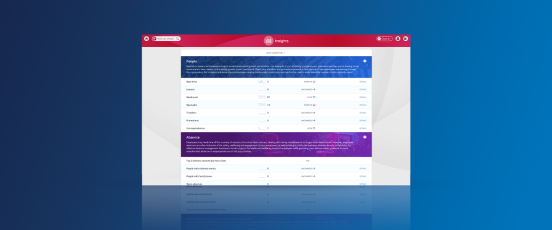Why Data Analytics will be a lifeline for UK Local Government
In this blog, we explore how the recent cuts in local government will impact the sector and how Data Analytics could save the sector from crumbling under the pressure.
Local government – a resource that admittedly, we’ve all taken for granted at one point or another. The task of caring for our elderly, cleaning our streets and emptying our bins are things that can often go unnoticed. But without the right action, the local government as we know it could change forever.
Cuts in funding have seen UK local government squeezed tighter than ever before. Since 2008 funding has decreased by 50% and by 2020, for every pound that councils used to receive, 60p will be slashed.
Despite this, the ever-increasing demand for improved services is still as present as ever and local governments are having to learn how to do more and more despite having less in their pockets.
Experts warn that without intervention, communities will be depleted of essential services and “damaged beyond recognition”, whilst voids in areas like children’s services is leading to council workers having to place children into care rather providing families with the support they need to stay together.
In PwC’s recent survey of local authority chief executives and leaders across the UK, the outlook is challenging with only 33% of respondents feeling confident about the next three years, and in the next five years, only 19% are confident that they will be able to make the necessary savings without seriously impacting the quality of service delivery and outcomes.
It’s clear that serious action needs to be taken in the sector, and whilst it’s unlikely that things will return to its former bliss, all hope is not lost.
Pressure creates diamonds
This shift in the sector will certainly either make or break local governments and unfortunately, the latter is likely to be the default outcome for those who don’t take action.
But these hard times also bring opportunities for councils to stand and take control of their own destinies.
For this to happen, it’s essential that local authorities reassess their current financial processes.
Let’s look at the way they’re currently doing things…
Typically, councils are still relying on spreadsheets to carry out their planning, and the lack of flexibility around this means that it can be hard to forecast quickly and accurately.
On top of this, manually inputting data into spreadsheets poses a great risk of errors and this makes it difficult to align plans with strategic objectives.
Many local authorities are also limiting reporting to activities that are essential to business operations, neglecting other information that would prove useful in better understanding their organisation.
All of this leads to sporadic data that’s hard to interpret which makes it almost impossible to effectively budget, forecast and plan at a granular level. And without this, essential needs within communities simply won’t be able to be met.
The pressure is on finance teams to make the figures add up, but to do this they will need to transform their current processes.
Doing things differently
The only way to match resource to spend is to have full visibility of your organisation.
How does the activity across the organisation align with financial plans? Which areas of the organisation will benefit from greater investment? What are the costs associated with activity across each area of the organisation?
These are the types of questions that councils need to be able to answer, but unfortunately many will struggle with this.
Research by PwC has found that over half of all respondents reported that they didn’t think their organisation was making the most of data, whilst only 30% believed that their council was confidently embracing new technologies like artificial intelligence.
Relying on manual methods to carry out financial reporting is a reactive way of working, as it prevents data from being used to its full potential in a way that supports decision-making and managing risk.
A better way of working
But Data Analytics can change all of this.
Instead of remaining victim to external chaos in the sector, it allows councils to take a proactive approach by unlocking insights from financial and non-financial data alike to make better decisions.
It enables finance teams to go beyond simply fulfilling day-to-day operations, and allows them to take their seat as a strategic player in the organisation, using data to understand where to invest and where to cut back.
Here are some of the main ways Data Analytics is helping to transform councils’ financial processes:
- Less time wasted processing data, more time spent analysing it
Data Analytics automates financial processes. This means that the time that would usually be spent processing data can instead be put to better use in analysing data to generate the most value to the organisation.
This allows councils to better understand the key drivers in their organisation so that they can invest in areas that will generate the highest ROI.
- Better visibility of the organisation
Understanding exactly what’s going on within the organisation and the costs associated with this activity is non-negotiable.
Every penny counts, and analytics gives councils a birds-eye view of their organisation so they can understand how changes even at the individual-level will impact financials.
This allows them to better align activity with the resources available, rather than relying on estimates to paint a picture of their organisation.
- Prepare for the future rather than reacting in the present
Councils can benefit from being able to anticipate the future way in advance.
Through Data Analytics, local authorities can use What-if scenario planning to plan for a range of different possible outcomes. This means that despite what happens, they’ll never be caught off-guard.
- A real-time understanding of the organisation
In changing situations, it’s important to be able to react quickly.
Analytics unlocks the ability to see changes as they happen so that local government can have a real-time understanding of their organisation and keep up with any changes, including changes in policies.
As resources become increasingly limited, in order to continue to provide for their communities, it’s essential that councils are able to account for each and every penny that enters into their organisation, using a strategic approach to appropriately assign resource.
Data Analytics empowers local governments to take full control of their financials so they can make decisions based on the facts rather than estimates, and remain confident even in times of uncertainty.



































































